- Home
- Heather Graham
A Perilous Eden Page 3
A Perilous Eden Read online
Page 3
“Why do you suppose he gave up his U.S. citizenship, Ted?”
“I, uh, don’t really know, sir,” Ted offered.
The president shifted and tapped a pencil on his desk. “Born in Linz, Austria, in 1950 of a White Russian refugee and a Polish Jewess. But the Austrians weren’t giving refugee infants citizenship in those days.”
Ted was surprised that the man had read so much in the few seconds his eyes had flicked over the file.
“That’s right, sir. His parents moved to the United States in 1954—he acquired his citizenship a few years later. His father died in 1967—that’s when he moved to Israel with his mother.”
“But he didn’t change his citizenship right away,” the president mused. He lifted a brow. “He let us draft him into the U.S. Army first.”
Ted shrugged.
The president continued. “He served out his time in ’Nam, then he became an Israeli. What do you think of that?”
“Well, begging your pardon, sir, there’s really not much for a man to do once he comes home, after he’s been in the Special Services. I mean, you spend weeks, months, years, learning to be a savage—” Ted broke off.
The president laughed dryly. “Yes, I see your point. It’s hard to come home to a suit and tie and Wall Street.” His fingers drummed against the desk. “But he wasn’t a violent man. He was an accountant.”
“For several years, sir. He was asked by his government to work in a … new capacity about five years ago. They needed his expertise for a rather tricky situation.”
The president looked at Ted sharply. “That’s when his alias was created?”
“Yes.”
“When were his wife and child killed?”
“Two years ago. A car bomb went off when they were at the seashore on vacation. His name had become known. His wife and child were inside—he had gotten out to buy a pack of cigarettes.”
“It’s a shame. A real shame.”
“Yes, it is.”
The president exhaled, staring at his puzzle. “But now, for our purposes … you’re sure he can’t be recognized?”
“He’s always worked undercover. No one would recognize him since the car bombing. To the world at large he’s a completely harmless bureaucrat. On the other hand, in certain circles, the alias, Michael Adams, is legendary. His reputation under that name allowed him to infiltrate the Death Squad without any difficulty. The Israeli connection is completely unknown.”
“I’m not sure I understand.”
“The persona was created slowly and carefully. Events, assassinations were all laid at his feet. The Death Squad is quite a conglomeration, you know. Dissatisfied Central and South Americans, and then a hard-core group from a number of the Arabic countries. They train in North Africa—we know that. Codes are usually in Spanish—but sometimes in Arabic. Once Adam tried to infiltrate as Michael Adams, the group pounced right on him.”
“Tell me more about Tchartoff.”
“He first went to Israel to see his mother, then he stayed for his wife.” Ted hesitated, then added softly, “Then, I think, he stayed for revenge.”
The president gazed at his desk, his fingers drumming on it “So he’s still angry …”
“Bitterly angry. That kind of loss is a pain that doesn’t go away.”
The drumming ceased as the older man stared at Ted abruptly. “I think he’s perfect. Can you arrange a meeting? Not in Washington, of course. The United States government is going to have nothing to do with this, you understand.”
“I understand your position perfectly, sir. No information of any kind will be on file. No one will know anything about it, except those directly involved, and they’ll know only what they’re told.”
“I want our men back. I want that ring of cutthroats busted sky-high. I do not want a pack of mercenary terrorists calling the shots in this country, and I don’t want them getting off in any foreign court.”
“No, sir,” Ted agreed. He hesitated a moment. “He’s in Washington now. I called him about a ceremony to honor his old unit. He should have come in just about—” he paused to look at his watch “—an hour ago.”
The president glanced at Ted with some surprise, then he smiled with slow and rueful admiration. “When is the ceremony?”
“Tomorrow at two.”
“I assume that my schedule is free, and that I’ll be able to attend?”
“Yes. You’ll be able to observe Mr. Tchartoff before you meet with him.”
The president nodded, satisfied. “Let’s just hope, shall we, that he’s still angry enough to accept our bait. Does he know our latest intelligence?”
“That the Death Squad was responsible for the bomb that killed his wife?”
“Yes.”
“I don’t know. He may have suspected.”
“But we have proof.” The president sat back. “I’m looking forward to meeting Mr. Tchartoff.” He smiled. “I hear that someone else is due in today.”
Ted felt a wide grin form. “Yes.” He glanced at his watch. “Amber should have arrived this morning. She said that she wanted to explore the Smithsonian, then she would come to lunch.”
“I’d like to see her. Can the two of you come to dinner this evening?”
“I’m sure that Amber will be delighted.”
“Good.”
Amber Larkspur stared at the giant elephant in the center of the rotunda of the Museum of Natural History. As many times as she had come here, she still loved the place. Just as she loved the Museum of the American People and the art museums and the Air and Space Museum and everything else about the entire Smithsonian Institution.
There was no place quite like Washington, D.C. She had missed it.
A group of schoolchildren came running out of the hallway leading to the sea creatures. Laughing, they raced for the elephant.
Amber carefully stepped out of their way, smiling. As an army brat, she’d done a lot of moving around. But what time she had spent in one place had been here—or, really, Alexandria, Virginia. As a kid she had come on field trips here, just as these kids were doing now. Life had been so simple then—and, of course, she hadn’t had the good sense to appreciate it. Not the simplicity, not the beauty. She smiled to herself, remembering the old saying—youth was wasted on the young.
Not that she was old, she reminded herself. But she had just turned twenty-nine, and she couldn’t deny that it was knowing thirty was just around the corner that had made her change her life so drastically last week.
A young couple looking around a little bit helplessly caught Amber’s attention. She smiled, realizing that they wanted to be together in a picture. She stepped forward, offering to snap a shot for them.
“Oh, will you?” The young woman, a pretty little brunette, flushed. “Thank you so much. This is our honeymoon, and we haven’t got a single picture together so far.”
“What a shame!” Amber said, smiling. “You should just ask. People here are great. Honestly. They’ll be happy to help you.”
She took a few pictures for them, then glanced at her watch. She wasn’t due to meet her father for a half hour yet. Not enough time to see another museum, but too much time for hurrying.
The couple thanked her, then asked her advice on the city. She suggested an itinerary for them, then saw them off with a wave.
Babies, she thought. Neither one of them could be over twenty. And they were married and off on a honeymoon. Just like playing house, only it was the real world.
Amber stepped outside. May was such a beautiful month here. The sky was mostly clear, with only a soft puff of cloud visible here and there. The cherry blossoms were out, the grass was green, and the world was beautiful.
She stuck her hands into the pockets of her blazer, crossed the street and idly began to wander along the grass toward the subway station. It felt like summer was here; even on a workday, it was evident. A young man tossed a Frisbee to a dog. Two women—office workers, perhaps, judging by their fashionabl
e dresses—picnicked on the lawn. There was a softball game going on about a hundred yards away. All around her she could hear laughter, and it was nice.
“This is the world,” she murmured to herself. “All you have to do is open the door and step into it.”
She smiled and picked up the tempo of her walk, her shoulder bag swinging beside her. She passed by a park bench with a man sitting on it.
She didn’t know why, but when she had passed the man, she turned back to look at him.
He was just sitting there. He looked like a million other men on a warm day in the park. He was wearing jeans, sneakers and a denim shirt. His arms were stretched out along the back of the bench, and his face was turned to the sun, as if he was savoring the warmth.
Even as she stared at him, he looked up, staring straight at her in return. It was uncanny. He had sensed her. She wasn’t moving, she hadn’t uttered a word, but he had known that she was watching him, and he had known exactly where she was standing.
She flushed, but though she meant to, she didn’t draw her eyes away from his immediately. He was too intriguing. She couldn’t begin to judge his age, except that he was still young enough—though young enough for what, she wasn’t sure. He wasn’t handsome; he was arresting. His features were rugged and strong, his eyes mesmerizing. They were light, she thought. She couldn’t really see them, but they were light, and he was reading her quickly, like an open book, instantly storing away whatever he saw, whatever he thought. There was a brooding intensity about him, she thought. An energy that lingered beneath his pose of lethargy.
Then he smiled. It wasn’t a lascivious smile—not the type of smile she might have expected from a strange man who had caught her staring at him in the park. It was just an interested smile, and maybe a slightly amused one. If he didn’t smile, she thought, he might be the type of man to make a person tremble. He wasn’t a man she would want to cross.
“Hello,” he said.
Amber felt a little like a fool. She nodded, then smiled in return. He was an intriguing man, but Washington was full of them. Powerful men, ambitious men. She felt that this one was powerful, but maybe not so ambitious. Or maybe he just didn’t have the same ambitions as other men. It didn’t matter, she assured herself. She was standing there staring at him, which was rude, and the least she could do was say hello back.
“Hello,” she returned. Then she swung around quickly and started for the subway station. As she walked, she felt that he was still looking at her. She turned around. He was watching her. And he didn’t pretend to look elsewhere when she caught him; in fact, he waved. She waved back, then kept walking, more quickly. She even ran down the steps when she reached the subway.
Once she was seated on the train, she tried to think ahead to lunch with her father, but the face of the stranger kept coming back to her.
It would fade, she assured herself.
By the time she reached the restaurant, she had almost forgotten his face. She wanted to tell her father the truth about what she was doing. She didn’t want him to feel sorry for her—she didn’t want him to say, “I told you so,” and she didn’t want him to worry. But neither could she forget five years of her life, and she didn’t want to pretend that what she was going through wasn’t heartbreaking.
They had arranged to meet at Zefferelli’s, a hole-in-the-wall not too far from the Capitol building. Amber arrived first. She was pleased when Zefferelli recognized her and led her to a small booth in the back with a single glowing candle and a spotless white cloth. Amber ordered wine, then sat back to wait for her father.
He arrived within five minutes. She saw him enter and speak with Zefferelli. She jumped to her feet, waving. She was so proud of him. He was a handsome man, with a distinguished touch of gray at the temples and his lean, straight form. He meant everything in the world to her, now more than ever.
He weaved his way among the tables and came over to her. She hugged him enthusiastically, curiously near crying as she did. She laughed, and her eyes watered, and they broke apart at last and sat across from one another.
After they ordered, Amber began by asking him about life in the White House. He told her about the president’s granddaughter, an eighteen-month-old, who had been left with the goldfish for a moment. She had taken all the pretty little creatures out and laid them on the table. The poor baby had been heartbroken to discover that they had all died.
Amber laughed; then Ted told her with a sigh that things weren’t going very well. They’d had another diplomat kidnapped in Rome the other day.
“How terrible!” Amber cried softly. “Did he have a family?”
Her father swallowed a sip of water. “Two little girls, a young, pretty wife.”
“It makes my problems seem rather shallow,” she murmured.
Ted Larkspur took his daughter’s hands in his own. “Nothing about you has ever been shallow, sweetheart. What’s going on? I’ve been worried sick since you called.”
“I left Peter, Dad.”
Ted absorbed the information silently, nodding. “For good?”
She shrugged. “Maybe I didn’t really intend to at first. I don’t know. Maybe I was dreaming. I might have thought that if I actually walked away—packed my bags, stored my belongings—he would realize that I wasn’t bluffing.” She smiled ruefully, picking up her wineglass. “We all just keep on believing in Prince Charming, I suppose. I thought he’d run after me and swear that he understood. So far, it hasn’t happened.”
Ted looked at Amber. He didn’t want to say, “I told you so,” but his values had been right in this case.
“Maybe you never should have moved in with him.”
Amber smiled. She had been expecting this. “Dad, I still believe that a forced marriage would have been a far worse thing.” She laughed. “But marriage wasn’t the point. It’s my age, I think. It’s the old biological clock. I’m almost thirty.”
Ted smiled. She might have been mentioning the fact that she was coming up on her centennial.
“I do believe that Peter loves you. I don’t think I could ever have endured that living arrangement if I didn’t believe that. Do you think he’ll come after you?”
Amber thought about the night—just two nights ago—when she had walked out of her home of five years. Over the past two years she had contemplated the move. Peter didn’t want marriage; he didn’t want to raise a family. He did love her, and more: he needed her.
He was five years older than she was, a good-looking man with dark hair and bright Irish eyes, a deep barrel chest, dimples and an easy smile. She’d fallen for him the moment they had met—in a bowling alley. He’d been seeing someone else at the time, and she had lain awake night after night praying that he would eventually call her.
He did. Casual dates at first—she knew that he was still seeing the other woman. She had refused to enter into a sexual relationship with him until she was the only one in his life. She was far from world-weary at twenty-five, but she knew that if she began a relationship that way, it would never change.
She should have been savvy enough to realize that the same thing applied to their living arrangements. Peter was a sweetheart. He was charming, and he would do anything for her—except make a complete commitment and agree to children. He loved her, he needed her, but he really had to keep thinking about children.
Well, he had been thinking for years.
Amber smiled sadly. He still didn’t believe that she was really gone, she was sure. She loved Peter, but she wanted children, and she didn’t believe in tricking any man into something that he didn’t want. Children deserved to be loved and wanted—by both parents.
She didn’t want a place to live—she wanted a home. She wanted a big backyard with some ridiculously huge German shepherd to slobber all over them. It didn’t seem like so much to ask out of life. All her friends envied her, she knew. She was well traveled, well educated; her father was a key man at the White House; she and Peter both made good money.
She had everything. Except for kids. Except for a simple gold band around her finger.
“Amber?”
“I’m sorry, Dad. I was wandering, I suppose.”
“I said, do you think he’ll come after you?”
“I don’t know. Maybe. But I’m already wondering if it would be enough.”
Zefferelli came over with their tortellini. Amber told her father that she had resigned from the magazine where she had been an associate editor. Ted remained silent as she told him that she planned to take some time off, then see if she could get a job with one of the Washington papers.
“It will work out,” he told his daughter.
She smiled, and he wondered how any man could let a woman escape when she had a smile like that and a heart the size of Kansas. And a mane of hair like a lioness, blue-green eyes like the Caribbean and a slim, shapely form to rival any man’s fantasy.
He was prejudiced, of course. He was her father. He would have liked to drag Peter Greenborough to the altar with a shotgun. But that wasn’t what she wanted, and he knew it. Well, it was her life.
“By the way, the president has asked us to dinner.”
“How nice!” Amber exclaimed. She was lying. She didn’t want to go to dinner at the White House. They wouldn’t be alone. There would be senators, other politicians. They would pair her off with some eligible man, and she would be miserable all night.
One way or the other, she would be miserable. But at the moment she just wanted to be miserable alone. She wanted to imagine Peter’s face and dream that he would come for her, ready to convince her that he couldn’t go on without a real commitment, either. That he was dying for children. Twins, triplets …
Amber paused suddenly, frowning. She wasn’t imagining Peter’s face, not the face she loved, not the face she had just left behind.
Curiously, she was seeing a stranger’s piercing light eyes. The man on the park bench. The stranger with the rough but appealing face. The man who had frightened her, in a way …
And then compelled her on some different level.
She ate her tortellini. Was it better to imagine a stranger and shiver? Or think about Peter and suffer differently?

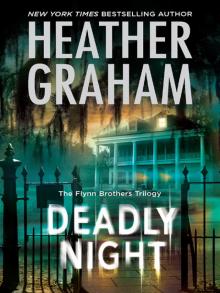 Deadly Night
Deadly Night The Uninvited
The Uninvited Dust to Dust
Dust to Dust Heart of Evil
Heart of Evil A Perfect Obsession
A Perfect Obsession The Keepers
The Keepers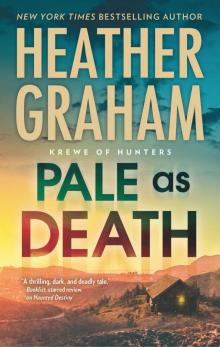 Pale as Death
Pale as Death Phantom Evil
Phantom Evil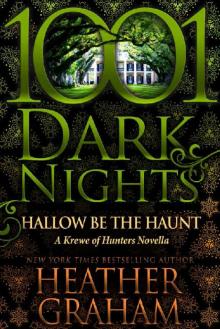 Hallow Be the Haunt
Hallow Be the Haunt Night of the Wolves
Night of the Wolves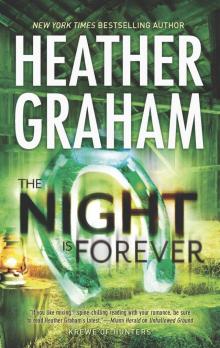 The Night Is Forever
The Night Is Forever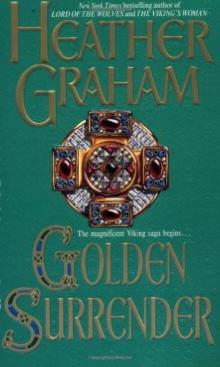 Golden Surrender
Golden Surrender Kiss of Darkness
Kiss of Darkness Beneath a Blood Red Moon
Beneath a Blood Red Moon A Dangerous Game
A Dangerous Game Ghost Shadow
Ghost Shadow Long, Lean, and Lethal
Long, Lean, and Lethal Fade to Black
Fade to Black The Rising
The Rising And One Wore Gray
And One Wore Gray Rebel
Rebel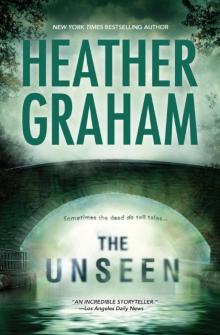 The Unseen
The Unseen The Night Is Watching
The Night Is Watching The Evil Inside
The Evil Inside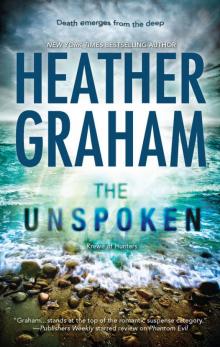 The Unspoken
The Unspoken The Night Is Alive
The Night Is Alive The Unholy
The Unholy Nightwalker
Nightwalker Deadly Harvest
Deadly Harvest An Angel for Christmas
An Angel for Christmas A Pirate's Pleasure
A Pirate's Pleasure American Drifter
American Drifter Realm of Shadows
Realm of Shadows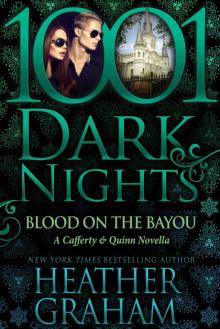 Blood on the Bayou
Blood on the Bayou Sacred Evil
Sacred Evil Dying to Have Her
Dying to Have Her The Cursed
The Cursed Captive
Captive Hurricane Bay
Hurricane Bay Drop Dead Gorgeous
Drop Dead Gorgeous Ghost Memories
Ghost Memories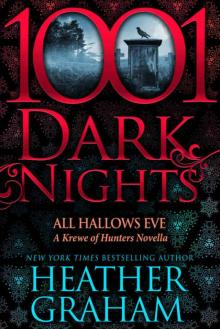 All Hallows Eve
All Hallows Eve Dying Breath
Dying Breath Deadly Fate
Deadly Fate The Dead Room
The Dead Room Lord of the Wolves
Lord of the Wolves Ghost Night
Ghost Night Ghost Walk
Ghost Walk The Forgotten
The Forgotten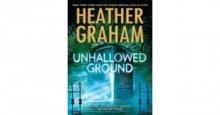 Unhallowed Ground
Unhallowed Ground One Wore Blue
One Wore Blue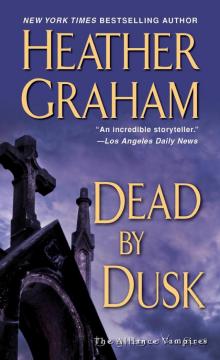 Dead By Dusk
Dead By Dusk Night of the Blackbird
Night of the Blackbird The Dead Play On
The Dead Play On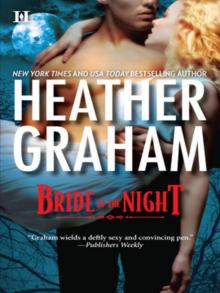 Bride of the Night
Bride of the Night Wicked Deeds
Wicked Deeds The Forbidden
The Forbidden Triumph
Triumph Out of the Darkness
Out of the Darkness Love Not a Rebel
Love Not a Rebel The Last Noel
The Last Noel Tall, Dark, and Deadly
Tall, Dark, and Deadly The Death Dealer
The Death Dealer Dead on the Dance Floor
Dead on the Dance Floor Law and Disorder
Law and Disorder Dark Rites
Dark Rites New Year's Eve
New Year's Eve Hostage At Crystal Manor
Hostage At Crystal Manor And One Rode West
And One Rode West Home in Time for Christmas
Home in Time for Christmas Killing Kelly
Killing Kelly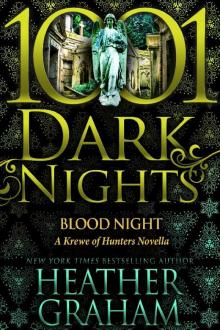 Blood Night
Blood Night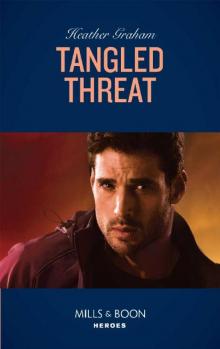 Tangled Threat (Mills & Boon Heroes)
Tangled Threat (Mills & Boon Heroes)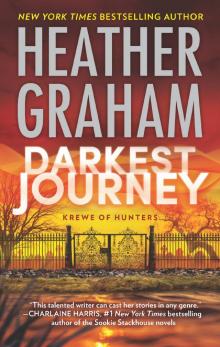 Darkest Journey
Darkest Journey Glory
Glory Deadly Touch
Deadly Touch An Unexpected Guest
An Unexpected Guest Night of the Vampires
Night of the Vampires Seize the Wind
Seize the Wind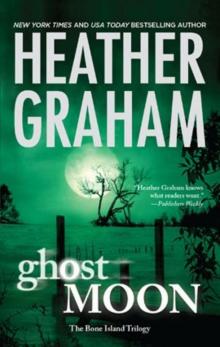 Ghost Moon
Ghost Moon The Vision
The Vision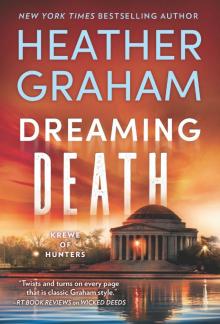 Dreaming Death
Dreaming Death Conspiracy to Murder
Conspiracy to Murder Horror-Ween (Krewe of Hunters)
Horror-Ween (Krewe of Hunters)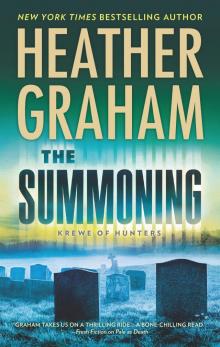 The Summoning
The Summoning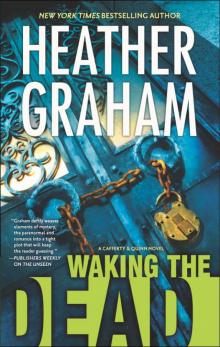 Waking the Dead
Waking the Dead Danger in Numbers
Danger in Numbers The Hidden
The Hidden Sweet Savage Eden
Sweet Savage Eden Tangled Threat ; Suspicious
Tangled Threat ; Suspicious Mother's Day, the Krewe, and a Really Big Dog
Mother's Day, the Krewe, and a Really Big Dog Picture Me Dead
Picture Me Dead The Killing Edge
The Killing Edge St. Patrick's Day
St. Patrick's Day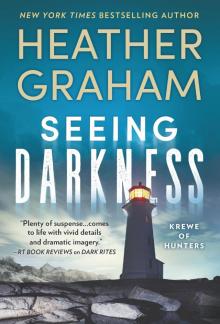 Seeing Darkness
Seeing Darkness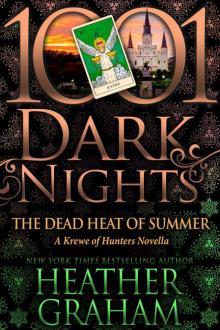 The Dead Heat of Summer: A Krewe of Hunters Novella
The Dead Heat of Summer: A Krewe of Hunters Novella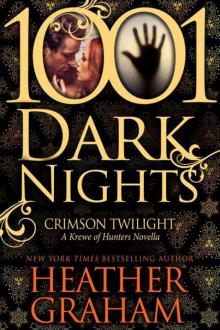 Crimson Twilight
Crimson Twilight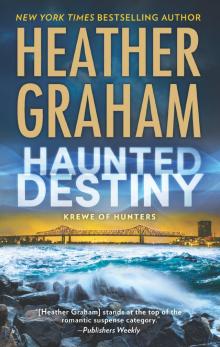 Haunted Destiny
Haunted Destiny Devil's Mistress
Devil's Mistress Banshee
Banshee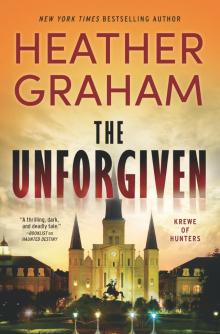 The Unforgiven
The Unforgiven The Final Deception
The Final Deception A Horribly Haunted Halloween
A Horribly Haunted Halloween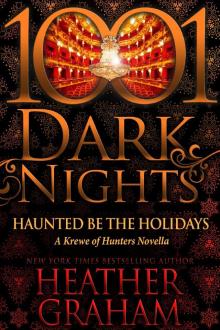 Haunted Be the Holidays
Haunted Be the Holidays Deadly Gift
Deadly Gift Easter, the Krewe and Another Large White Rabbit
Easter, the Krewe and Another Large White Rabbit Haunted
Haunted The Silenced
The Silenced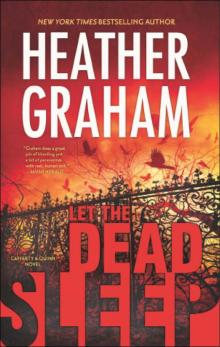 Let the Dead Sleep
Let the Dead Sleep Christmas, the Krewe, and Kenneth
Christmas, the Krewe, and Kenneth Big Easy Evil
Big Easy Evil Sinister Intentions & Confiscated Conception
Sinister Intentions & Confiscated Conception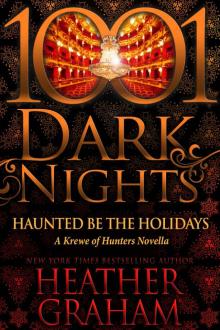 Haunted Be the Holidays: A Krewe of Hunters Novella
Haunted Be the Holidays: A Krewe of Hunters Novella Blood Red
Blood Red A Perilous Eden
A Perilous Eden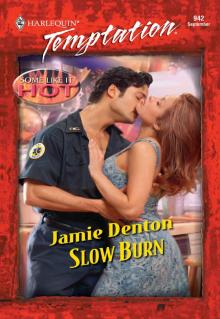 Slow Burn
Slow Burn Strangers In Paradise
Strangers In Paradise Bitter Reckoning
Bitter Reckoning Krewe of Hunters, Volume 1: Phantom Evil ; Heart of Evil ; Sacred Evil ; The Evil Inside
Krewe of Hunters, Volume 1: Phantom Evil ; Heart of Evil ; Sacred Evil ; The Evil Inside Do You Fear What I Fear?
Do You Fear What I Fear? The Face in the Window
The Face in the Window Krewe of Hunters, Volume 3: The Night Is WatchingThe Night Is AliveThe Night Is Forever
Krewe of Hunters, Volume 3: The Night Is WatchingThe Night Is AliveThe Night Is Forever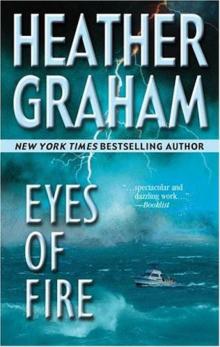 Eyes of Fire
Eyes of Fire Apache Summer sb-3
Apache Summer sb-3 Sensuous Angel
Sensuous Angel In the Dark
In the Dark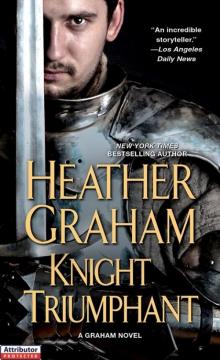 Knight Triumphant
Knight Triumphant Hours to Cherish
Hours to Cherish Tender Deception
Tender Deception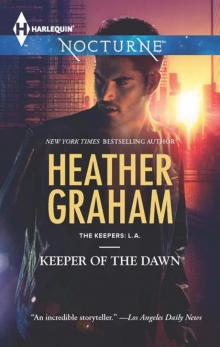 Keeper of the Dawn tkl-4
Keeper of the Dawn tkl-4 Apache Summer
Apache Summer Between Roc and a Hard Place
Between Roc and a Hard Place Echoes of Evil
Echoes of Evil The Game of Love
The Game of Love Sacred Evil (Krewe of Hunters)
Sacred Evil (Krewe of Hunters) Bougainvillea
Bougainvillea Tender Taming
Tender Taming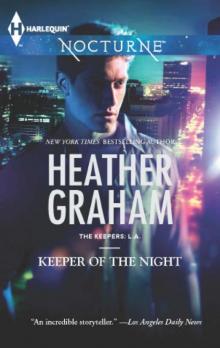 Keeper of the Night (The Keepers: L.A.)
Keeper of the Night (The Keepers: L.A.) Lonesome Rider and Wilde Imaginings
Lonesome Rider and Wilde Imaginings Lucia in Love
Lucia in Love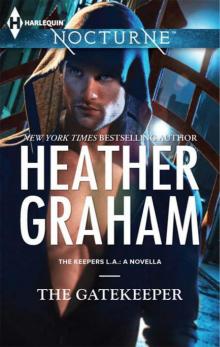 The Gatekeeper
The Gatekeeper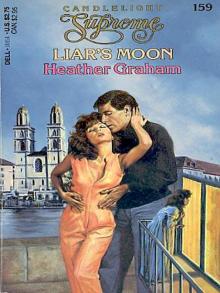 Liar's Moon
Liar's Moon Dark Rites--A Paranormal Romance Novel
Dark Rites--A Paranormal Romance Novel A Season for Love
A Season for Love Krewe of Hunters, Volume 6: Haunted Destiny ; Deadly Fate ; Darkest Journey
Krewe of Hunters, Volume 6: Haunted Destiny ; Deadly Fate ; Darkest Journey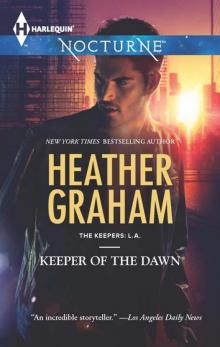 Keeper of the Dawn (The Keepers: L.A.)
Keeper of the Dawn (The Keepers: L.A.)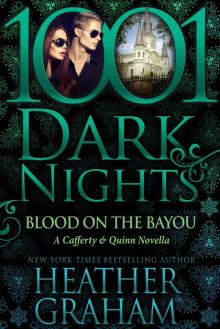 Blood on the Bayou: A Cafferty & Quinn Novella
Blood on the Bayou: A Cafferty & Quinn Novella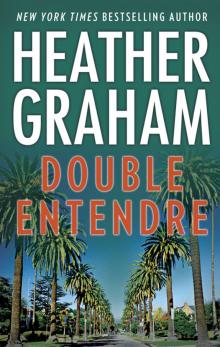 Double Entendre
Double Entendre A Perfect Obsession--A Novel of Romantic Suspense
A Perfect Obsession--A Novel of Romantic Suspense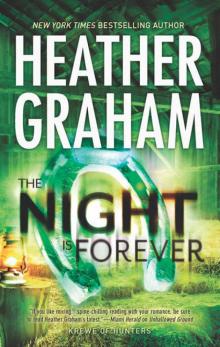 The Night Is Forever koh-11
The Night Is Forever koh-11 The Di Medici Bride
The Di Medici Bride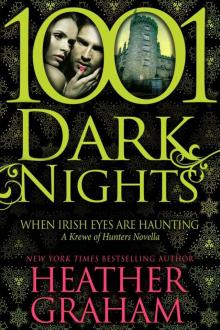 When Irish Eyes Are Haunting: A Krewe of Hunters Novella
When Irish Eyes Are Haunting: A Krewe of Hunters Novella The Keepers: Christmas in Salem: Do You Fear What I Fear?The Fright Before ChristmasUnholy NightStalking in a Winter Wonderland (Harlequin Nocturne)
The Keepers: Christmas in Salem: Do You Fear What I Fear?The Fright Before ChristmasUnholy NightStalking in a Winter Wonderland (Harlequin Nocturne)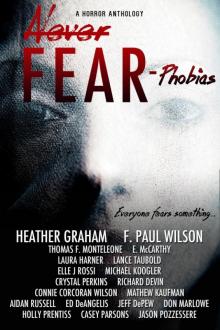 Never Fear
Never Fear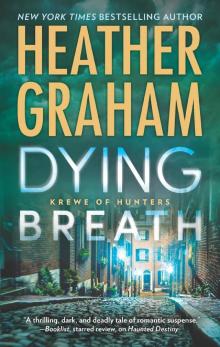 Dying Breath--A Heart-Stopping Novel of Paranormal Romantic Suspense
Dying Breath--A Heart-Stopping Novel of Paranormal Romantic Suspense If Looks Could Kill
If Looks Could Kill This Rough Magic
This Rough Magic Heather Graham's Christmas Treasures
Heather Graham's Christmas Treasures Hatfield and McCoy
Hatfield and McCoy The Trouble with Andrew
The Trouble with Andrew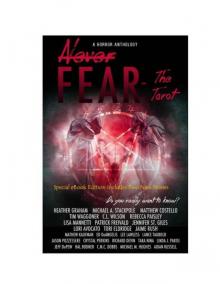 Never Fear - The Tarot: Do You Really Want To Know?
Never Fear - The Tarot: Do You Really Want To Know?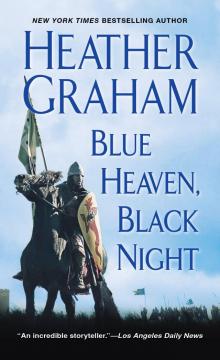 Blue Heaven, Black Night
Blue Heaven, Black Night Forbidden Fire
Forbidden Fire Come the Morning
Come the Morning Dark Stranger sb-4
Dark Stranger sb-4 Lie Down in Roses
Lie Down in Roses Red Midnight
Red Midnight Krewe of Hunters Series, Volume 5
Krewe of Hunters Series, Volume 5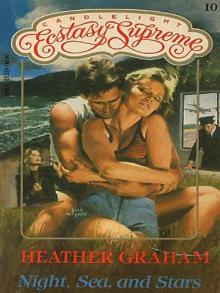 Night, Sea, And Stars
Night, Sea, And Stars Snowfire
Snowfire Quiet Walks the Tiger
Quiet Walks the Tiger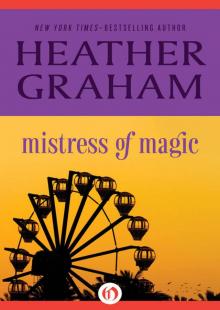 Mistress of Magic
Mistress of Magic For All of Her Life
For All of Her Life Runaway
Runaway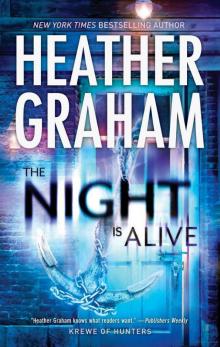 The Night Is Alive koh-10
The Night Is Alive koh-10 The Evil Inside (Krewe of Hunters)
The Evil Inside (Krewe of Hunters)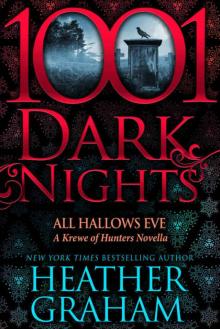 All Hallows Eve: A Krewe of Hunters Novella (1001 Dark Nights)
All Hallows Eve: A Krewe of Hunters Novella (1001 Dark Nights) Tomorrow the Glory
Tomorrow the Glory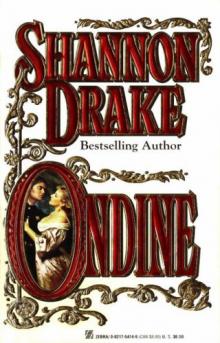 Ondine
Ondine Angel of Mercy & Standoff at Mustang Ridge
Angel of Mercy & Standoff at Mustang Ridge Bride of the Tiger
Bride of the Tiger When Next We Love
When Next We Love Heather Graham Krewe of Hunters Series, Volume 4
Heather Graham Krewe of Hunters Series, Volume 4 A Season of Miracles
A Season of Miracles Realm of Shadows (Vampire Alliance)
Realm of Shadows (Vampire Alliance) When We Touch
When We Touch Serena's Magic
Serena's Magic Rides a Hero sb-2
Rides a Hero sb-2 All in the Family
All in the Family Handful of Dreams
Handful of Dreams A Stranger in the Hamptons
A Stranger in the Hamptons Krewe of Hunters, Volume 2: The Unseen ; The Unholy ; The Unspoken ; The Uninvited
Krewe of Hunters, Volume 2: The Unseen ; The Unholy ; The Unspoken ; The Uninvited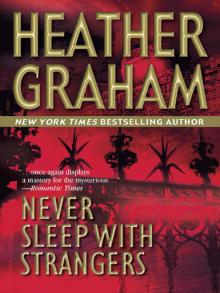 Never Sleep With Strangers
Never Sleep With Strangers Eden's Spell
Eden's Spell A Magical Christmas
A Magical Christmas Forever My Love
Forever My Love King of the Castle
King of the Castle Night Moves (60th Anniversary)
Night Moves (60th Anniversary) The Island
The Island Borrowed Angel
Borrowed Angel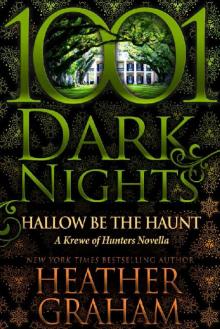 Hallow Be the Haunt: A Krewe of Hunters Novella
Hallow Be the Haunt: A Krewe of Hunters Novella Why I Love New Orleans
Why I Love New Orleans The Last Cavalier
The Last Cavalier A Matter of Circumstance
A Matter of Circumstance Heather Graham's Haunted Treasures
Heather Graham's Haunted Treasures Tempestuous Eden
Tempestuous Eden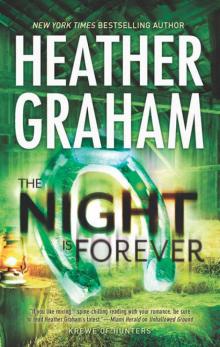 Krewe 11 - The Night Is Forever
Krewe 11 - The Night Is Forever